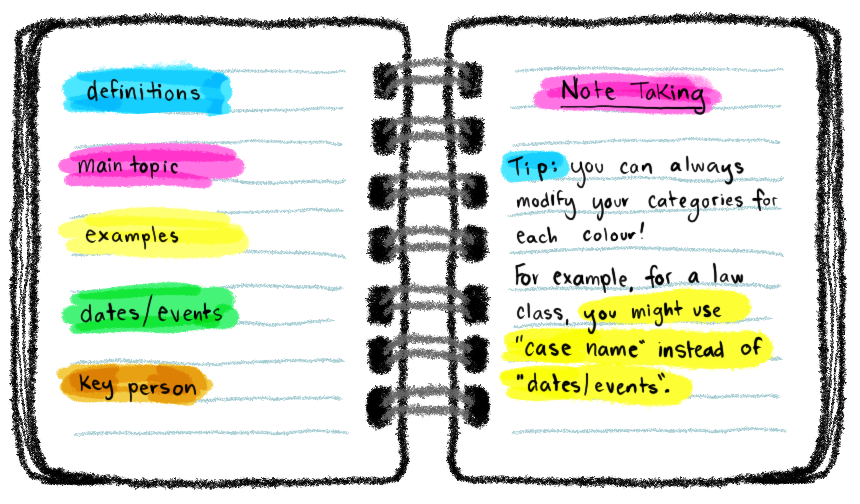
Did you know that you are seven times more likely to remember information one week after class if you take notes?
Note-taking is one of the most widely recognized forms of studying, and for good reason! Effective notes can help you learn information during class, recall information later, and help you study.
Taking notes during a virtual class can be difficult, and there are a lot of barriers that come with that, whether it be a slow internet connection, lack of presentation tools, overwhelming walls of text, or even just adjusting to a new learning environment.
5 strategies to help manage your note-taking and your time:
1. Use pen and paper
It can be both a benefit and a burden to have access to today's on-the-go technology. Taking notes using pen and paper forces you to engage with the information, thus making stronger connections in your brain.
Not only will this method of note-taking help you to remember information better, but it will also be easier during an online course. Trying to type your notes while watching a virtual lecture might involve a lot of switching back and forth between programs and tabs, which can be a hassle.
2. Connect with your professor(s)
It is important to communicate with both your professor and your peers, especially when enrolled in a virtual course.
Ask your professor if they will be posting any PowerPoint presentations before or after each class. If they post before class, then take a few minutes to review the slides to consider what you already know. This will help you in the process of taking notes during class, as you will be prepared for what your professor is going to be teaching.
3. Create a colour code system
It's hard to re-read your notes when it's just a wall of frantically scribbled text. While the act of writing notes does help your brain to remember the information in the moment, you will still need to study from the notes you take, which means legibility will be important!
Breaking up pages of notes with a colour coding system can really help you to study more efficiently.

4. Consolidate your notes
Re-writing your notes will not only help you remember the information, but it will also give you an opportunity to re-organize the layout of your page. This can help you to see how some topics and information may connect with each other. We suggest weekly consolidation sessions, so you can review and condense your notes each week.
If you plan to re-write your notes, then you don't need to worry about how messy and disorganized they are when you are writing them during a lecture.
5. Stick to the main ideas
It can be difficult to decide what is and isn't important when taking notes, and this is especially true for a virtual class. Taking too many notes is possible and can be just as overwhelming as not taking any notes at all.
When you review your notes, you don't want to be drowning in a sea of words! Be attentive to the main ideas and concepts within the material, using bullet points, and be mindful of making connections between topics. If your professor posts their PowerPoint slides ahead of lecture, reviewing the slide titles can help you to anticipate the main ideas for the lecture.




